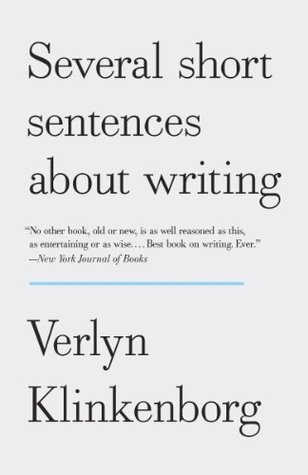More on this book
Community
Kindle Notes & Highlights
This is not an assumption. It’s a conclusion.
Pay attention to rhythm, first and last.
Short sentences aren’t hard to make.
Write these things down—the contents of the noise in your head as you write. You can’t revise or discard what you don’t consciously recognize.
What you don’t know and why you don’t know it are information too.
Many people assume there’s a correlation between sentence length and the sophistication or complexity of an idea or thought—even intelligence generally. There isn’t. 2. Many people assume there’s a correlation between the reader’s experience while reading and the writer’s experience while writing—her state of mind, her ease or difficulty in putting words together. There isn’t.
How long is a good idea? Does it become less good if it’s expressed in two sentences instead of one?
Writing short sentences restores clarity, the directness of subject and verb.
Think about variation and rhythm, The rhythm created by two or three sentences working together, Rhythm as sound and echo but also rhythm as placement. Learn to use the position of a sentence, the position of a word—
One way to keep sentences short is to keep the space between them as empty as possible. I don’t mean the space between the period at the end of one sentence and the first word of the next. I mean the space between the period and the subject of the next sentence. That space often gets filled with unnecessary words. Most sentences need no preamble—or postlude.
The longer the sentence, the less it’s able to imply, And writing by implication should be one of your goals. Implication is almost nonexistent in the prose that surrounds you,
The ability to suggest more than the words seem to allow, The ability to speak to the reader in silence.
A writer’s real work is the endless winnowing of sentences, The relentless exploration of possibilities, The effort, over and over again, to see in what you started out to say The possibility of saying something you didn’t know you could.
Shape, form, structure, genre, the whole—these have a way of clarifying themselves when sentences become clear. Once you can actually see your thoughts and perceptions, It’s surprising how easy it is to arrange them or discover their arrangement. This always comes as a revelation.
What we’re working on precedes genre. For our purposes, genre is meaningless.
I’m interested in the genre of the sentence, The genre that’s always overlooked.
But genres are merely outlines by another name. Better to be discovering what’s worth discovering, Noticing what you notice, And putting it into sentences that, from the very beginning, Open the reader’s trust and curiosity, Creating a willingness in the reader to see what you’ve discovered, No matter what genre you call it. Or, better yet, make the reader forget about genre completely.
If you make strong, supple sentences, Improvise, understand and exploit your mistakes, Keep yourself open to the possibilities each sentence creates, Keep yourself open to thought itself, And read like a writer, You can write in any form.
You have far more experience as a reader than you do as a writer.
You were taught that reading is extraction.
But no one said a word about following a trail of common sense
The jungle of transitions than crossing the gap of a well-made ellipsis.
As if the period marks a boundary of comprehension.
You were almost never asked to notice or observe, witness or testify.


